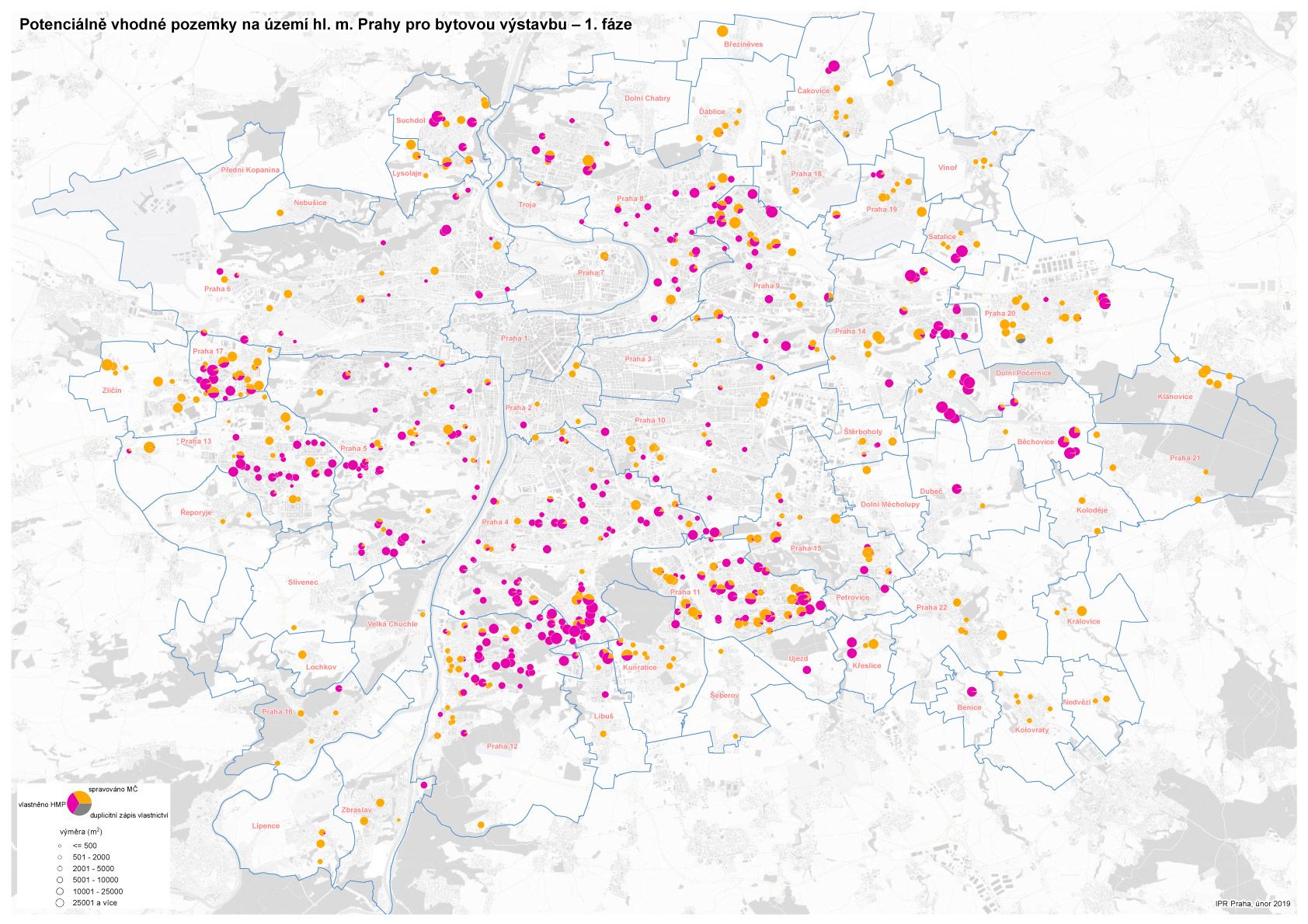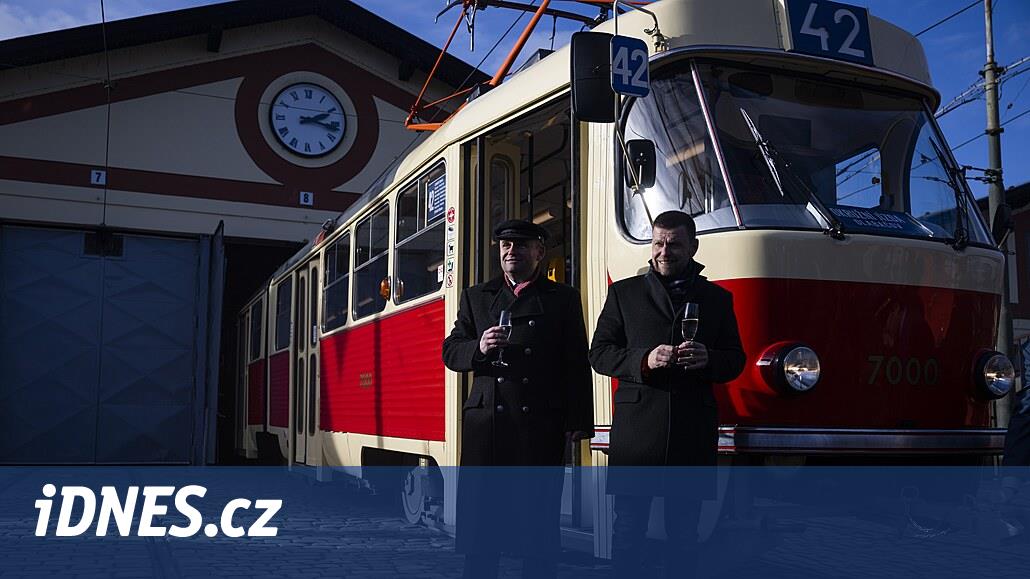Prague itself a developer. The metropolis wants to design districts in the Vinohrady style
Prague laid the foundations for the establishment of its own development company. With its help, it wants to ensure that, at least on city land, neighborhoods with affordable housing are created, similar to the popular Vinohrady.
If everyone in Prague agrees on something, it is the fact that the metropolis lacks thousands to tens of thousands of apartments. Logically, this focuses on private developers who seem to be the only hope for change. Just because they have built about 99 percent of the new apartments in the last twenty years.
However, the Prague leadership sees a way out elsewhere. He wants to get involved in the construction of apartments himself. He sees the fundamental problem in the fact that the municipality has only a minimal influence on what will be built in the metropolis.
There is a zoning plan that determines where to build and where not, and sets the boundaries – for example, how tall buildings can be built and whether it is offices or housing. However, whether there will be apartment buildings on the plot that an ordinary family can afford, or luxury residences, and whether there will be a school in the corner of the area and a green square nearby, the city is already suffering from it.
Prague wants to change that now. At least on their own vacant land, which still remains and on which the construction of apartments is even possible. There are almost 600 such plots in Prague and the municipality wants them to build on them according to the city’s ideas. This is to be ensured by the Municipal Developer, ie a new department that is currently being established at the Prague Institute of Planning and Development (IPR).
Prague district proposed, but do not intend to dig into the country yet
At least from the beginning, this city developer does not want to “dabble” private companies into everything. For example, he does not plan to build apartment buildings himself. Simply put, it selects a specific plot of land and leads it to the point where construction can begin. But someone else is already taking it.
“I will try to describe it in an ideal state, ie on a relatively large plot of land,” says Petr Hlaváček, a councilor for territorial development (TOP 09). According to him, the city can take care of such territory – sell the whole to the developer and have it used on him. The metropolis has money from this, but to a large extent it is losing control over future development.
According to Hlaváček, the second option is for Prague to start preparing the territory itself. And this is where the Urban Developer comes in. “To put it simply – he will say that there must be a square, here a school and here one, second and here a third block of apartment buildings and between them streets and greenery. It divides where there is public and where there is private interest,” Hlaváček said.
Then the city selects one of the blocks for housing and in a competition for a private company. According to Hlaváček, the developer will be interested in such an area, because at the same time he will obtain a zoning decision or a registered zoning study. These are enough for him to build the house on the spot without undue delay. According to Hlaváček, the deal may also include an agreement that the city will receive a percentage of the flats created for social housing.
“But in addition, the city will get money to finance other projects in the area, such as building a school. And because we want some market diversity and support housing, we will give the second block of houses on a competitive basis to housing cooperatives. baugruppe, because we also want to support young people who are active, ”explains Hlaváček.
The term baugruppe refers to a form of construction in which a group of future residents build a house with an architect according to their own ideas.
The city builds the city
Gradually, he wants to evaluate all the mentioned methods of construction and find out what is the ideal Prague road. According to city estimates, up to several thousand flats should be built in the “developer” “workshop”.
But Hlaváček sees the biggest plus in the fact that the city will have much more control over how Prague changes. “By leaving everything out of the city, we need a social consensus on what the state is supposed to have in the area, and we need people to create public amenities there. We prevent us from constantly worrying about what someone around them will put up with. , ”Adds Hlaváček.
He himself admits that this is not a complete novelty that arose in the heads of the new coalition. For example, Munich has had its own developer since 1918. He is the author of eight percent of the housing stock and also builds social flats, schools, kindergartens and shelters. In a similar way – that is, the city will determine where the houses will stand, and private individuals will “only” build them – it was built in Prague more than years ago. Thus, for example, Prague’s Vinohrady was created.
“The cities that come to life are conceived in this way. It doesn’t matter if they are Vinohrady, parts of Munich or Hamburg, it’s still the same principle. As I say simply – a city builds a city,” says Hlaváček. According to him, this is a return to the classic city that residents love. The already mentioned Vinohrady has long been valued among Praguers and foreign expats as the best place to live in the metropolis.
Dozens of suitable plots of land will be selected from 600 localities
The first step of the new Municipal Developer will be to select several dozen suitable plots of land, on which the preparation of the territory will begin. IPR already has a list of almost 600 sites owned by the city, where it would be possible to build apartment buildings in accordance with the existing zoning plan. But the list still needs a deeper analysis.
IPR selected almost 600 plots of land owned by the municipality or town halls, on which it would be possible to build flats. Now he wants to choose those where such construction would be really appropriate. | Photo: IPR
“Some of it is green areas in housing estates, we will probably eliminate such land immediately,” says Hlaváček. In the case of other plots of land, where the zoning plan does not allow the construction of apartment buildings today, then, according to him, its change is possible.
The city developer is also to participate in the preparation and coordination of the development of large brownfields, such as Bubny-Zátory.
The new department will start with three employees and gradually the team will grow to about eight people. If the project works, a separate joint-stock company should be set up in the future, not unlike a transport company, which could already ensure construction itself and not rely on the private sector.



